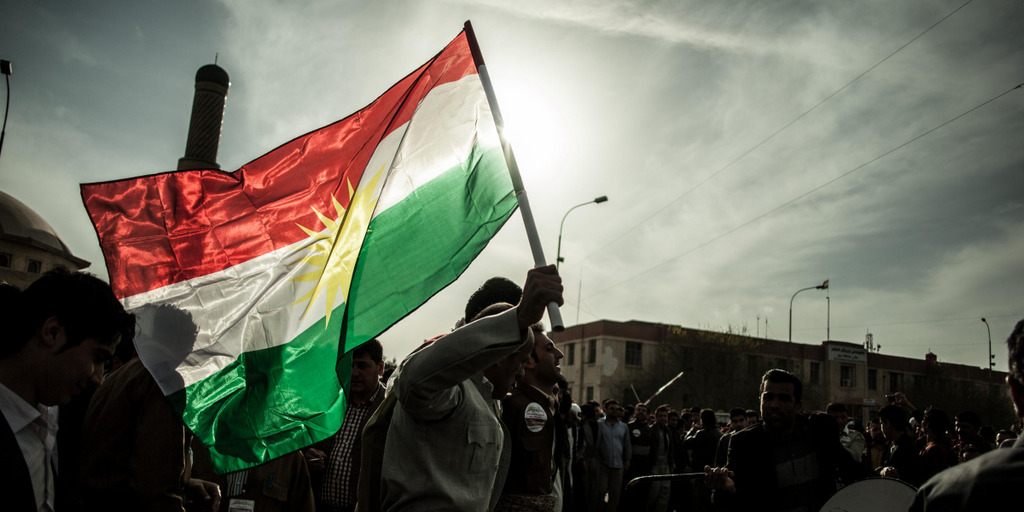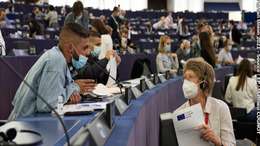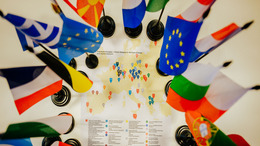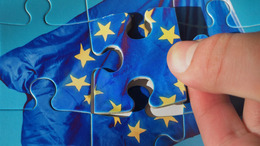Meanwhile Europe, in a quandary, is issuing warnings. Germany, with its support for the Kurdish Peshmerga forces, is caught between a rock. Independence for the Kurdish people is a legitimate concern; however it will succeed only if greater sovereignty is embedded in good governance and an efficiant and federal framework. Yet again in the crisis-ridden Middle East, there is a lack of the sort of conference on security and cooperation that would contain conflicts such as the Kurdish issue peacefully and at the regional level.
With estimates of between 30 to 40 million people, the Kurds are the largest stateless ethnic group in the Middle East. Over the centuries, their areas of settlement were divided between Iran and the Ottoman Empire. The Treaty of Lausanne in 1923 likewise partitioned the Kurdish territory among Iran, Turkey, Iraq and Syria. Beginning in 1991, in three northern Iraqi governorates the Kurds gained autonomy, which since 2005 has been enshrined in Iraq’s constitution. 18% of the 37 million Iraqis are Kurds.
The desire for statehood is kept alive by many of them. In the autonomous area, over 90% of the Kurds have now voted for national independence. The flag of Kurdistan, with its golden sun at the center, waves everywhere; emotions run high and expectations are immense. However, the “yes” vote holds great symbolic power but is not binding.
The motivations of Masoud Barzani, president of the autonomous Kurdish region of northern Iraq since 2005, are many and complex: in the jockeying for power with other Kurdish clans and factions, from the PKK to the PUK, Barzani wants to see himself and his party, the KDP, recorded in the history books as the party that led the Kurds to independent statehood. Moreover, Barzani wants to use the affirmation of the referendum as a legitimation of his continued rule, since no parliamentary or presidential elections have taken place in northern Iraq for some years. The vote for independence also functions as a maneuver to divert attention from rampant corruption and a rising social and economic crisis. Understandably, on the other hand, Barzani is concerned with demanding recompense from the central government in Baghdad and the international community for the large number of the Kurdish Peshmerga forces fighting the “Islamic State”, protecting the minorities of Christians and Yesids, and helping hundreds of thousands of Iraqi and Syrian refugees.
However, the referendum brings a risk for the Kurdish leaders in northern Iraq, as resistance is gathering from all sides:
The central government in Baghdad is rejecting the referendum. At first, it has announced to take control over Erbil airport and to organize boycott of direct international flights to this Kurdish capital. In addition, the parliament in Bagdad has called for the army to march into the area that the Kurdish Peshmerga forces captured from the “Islamic State” and have held since then (and wish to retain control of), particularly the oil-rich governorate of Kirkuk. Barzani has had a vote taken in this area as well.
For years, the central government and the autonomous Kurdish government have been fighting over territory, border crossings and oil exports. The victory over the “Islamic State” and the referendum will serve to exacerbate the conflict between Baghdad and Erbil, as well as the ethnic and religious differences between Sunnis and Shiites, Arabs, Turkmens and Kurds.
Thus Iraqi Shiite militias that have also fought against the “Islamic State” are taking up positions against the Peshmerga. They are supported by the Iranian Revolutionary Guard, who for their part are conducting maneuvers in western Iran where the Iranian Kurds live. Tehran is concerned that the desire for statehood will spread across the border to its own Kurdish citizens.
These fears are also shared by Turkish president Erdogan. He too has categorically rejected the referendum. Around 14 million Kurds live in Turkey – especially in the southeast, which is under martial law. Ankara is carrying on a war of attrition against the Kurdish PKK. The Turkish army has currently been tracking down PKK fighters in northern Iraqi territory. In addition, Ankara has announced a ban on oil exports and sanctions against northern Iraq.
The United Nations, the United States, and the European Union have all preemptively rejected the Kurdish referendum, out of justifiable fears of the danger of additional escalation. The fact that Kurdish president Barzani has carried out the vote for independence – despite widespread international pushback – shows that a strategy of promises and deferrals is no longer enough.
Barzani is indeed backpedaling, and now declares that the referendum does not mean an immediate proclamation of statehood, but rather the go-ahead for serious talks with the central government in Baghdad. These talks are urgently required and must be monitored by the United States and the European Union. A balance between all ethnic and religious groups, to the point of greater statehood for the Kurds, can be achieved only if good governance (in Baghdad as well as Erbil) and an efficient and federal system of administration can guarantee the genuine participation of all in political power and economic resources.
Since the Kurdish question also carries with it the dimension of trans-border conflict, it – like other complex disputes – can be de-escalated and mitigated by a regional conference for security and cooperation in the Middle East. The new German and European foreign policy should be employed to this end.
Germany has an additional interest in helping solve the Kurdish issue peacefully, since Berlin equipped the Peshmerga forces with weapons and technology in the fight against the “Islamic State”. Many Kurds and their stakeholders live in Germany. Twenty-five years ago, the Iranian secret service shot and killed exiled Kurdish politicians in the Mykonos restaurant in Berlin, and the matter of the Kurds and the PKK has long been an explosive issue between Germany and Turkey ever since.
Christian Hanelt is Senior Expert on the Middle East at the Bertelsmann Stiftung.







